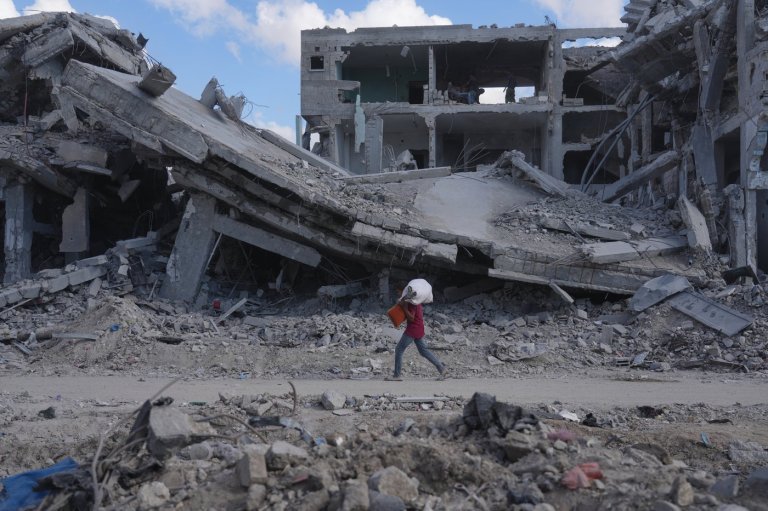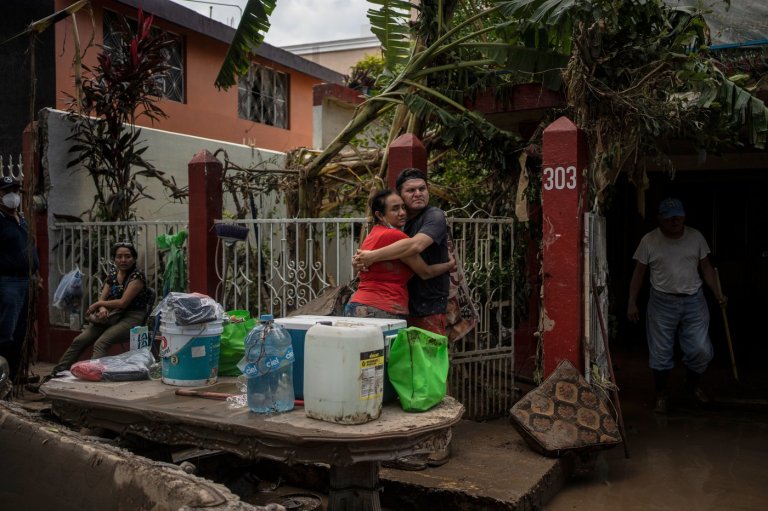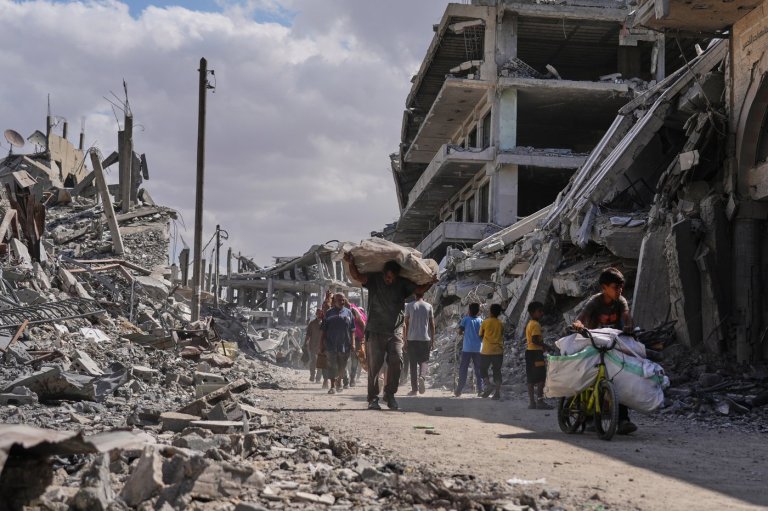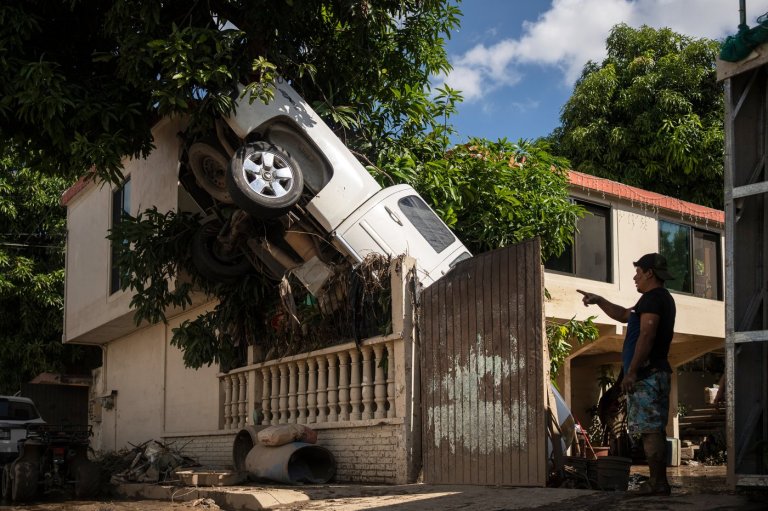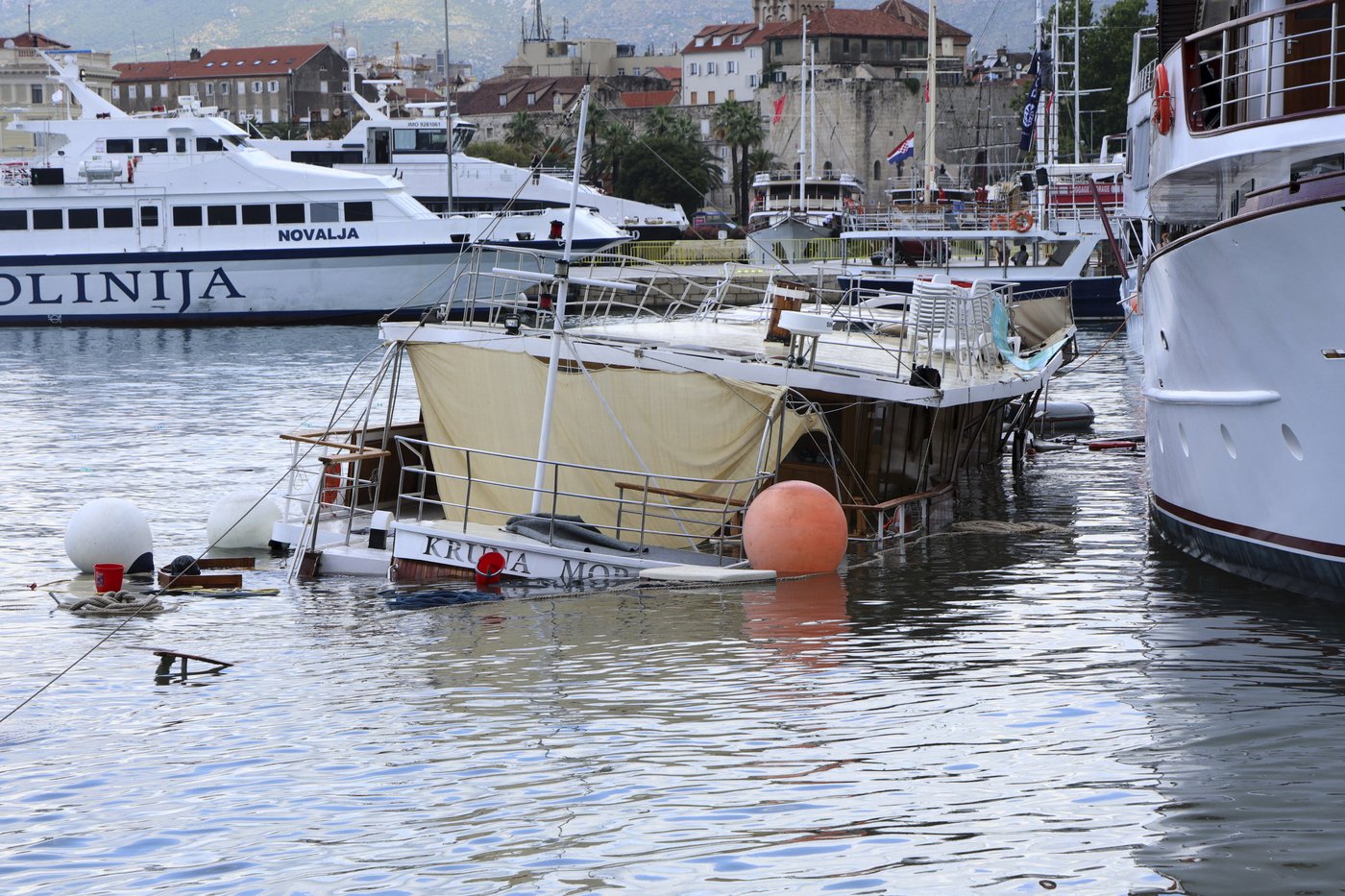
Storms and fires hit Balkan countries following a period of extreme summer heat
BELGRADE, Serbia (AP) — A severe hail storm ripped up trees and roofs in Croatia on Tuesday, while an empty tourist boat sank when it was hit by a ferry that broke its moorings in the Adriatic Sea port of Split.
Elsewhere, hundreds of fires raged in neighboring Serbia following a period of extremely hot weather in parts of the Balkan region.
A brief but powerful storm hit Split, with strong winds and hail damaging the roof of the city’s Poljud soccer stadium. A ferry in the port became loose and was blown by winds into two other moored vessels, one of which sank.
At least three people were injured in the storm, which cause severe damage across the city. Photos carried by Croatian media showed downed trees and flooded streets.
The Index news portal said that offices and the playing pitch at the Poljud stadium were damaged, as well as the roof. The report quoted the Split meteorological service as saying that “such storms are usual after a long period of heat with extremely hot days.”

Previously, Croatia and the rest of the Balkans experienced a heat wave with temperatures reaching 40 degrees Celsius (104 Fahrenheit) and more. Meteorologists said the storms prefigured cooler days ahead with temperatures set to drop to around 20 degrees Celsius (68 Fahrenheit) in some areas.
The weather service in neighboring Slovenia said on Tuesday that snow fell at high altitudes in the Alps while the rest of the country has been pounded with heavy rain and hail.
After battering Croatia, the storm later swept through Bosnia and Serbia, briefly disrupting air travel at the airport in Belgrade, Serbia’s capital. Videos posted on social networks showed a crane falling at a construction site in Belgrade.
At least one person has been injured in Belgrade, doctors said.
But rain was welcome in Serbia, where firefighters battled more than 600 wild fires on Monday that injured six people. Serbia has been hit by a severe drought this summer that has endangered crops and led to restrictions in supplies of drinking water throughout the country.

Serbian police late on Monday urged residents to be very cautious as dry and hot weather increases chances of wild fires. At least three municipalities in southern parts of the country declared emergency measures due to the fires.
“Many villages were jeopardized. We have a number of burnt and damaged properties but we have managed to save many too,” senior emergency official Nedeljko Gagic told state-run RTS television.
Serbia’s meteorological institute has also warned on low water levels on the two biggest rivers in the country, the Danube and the Sava, as well as smaller ones.
Experts say that extreme weather conditions can be linked to climate change. Extremely hot weather and wild fires were reported throughout Europe in early July.

Join the Conversation!
Want to share your thoughts, add context, or connect with others in your community?
You must be logged in to post a comment.













